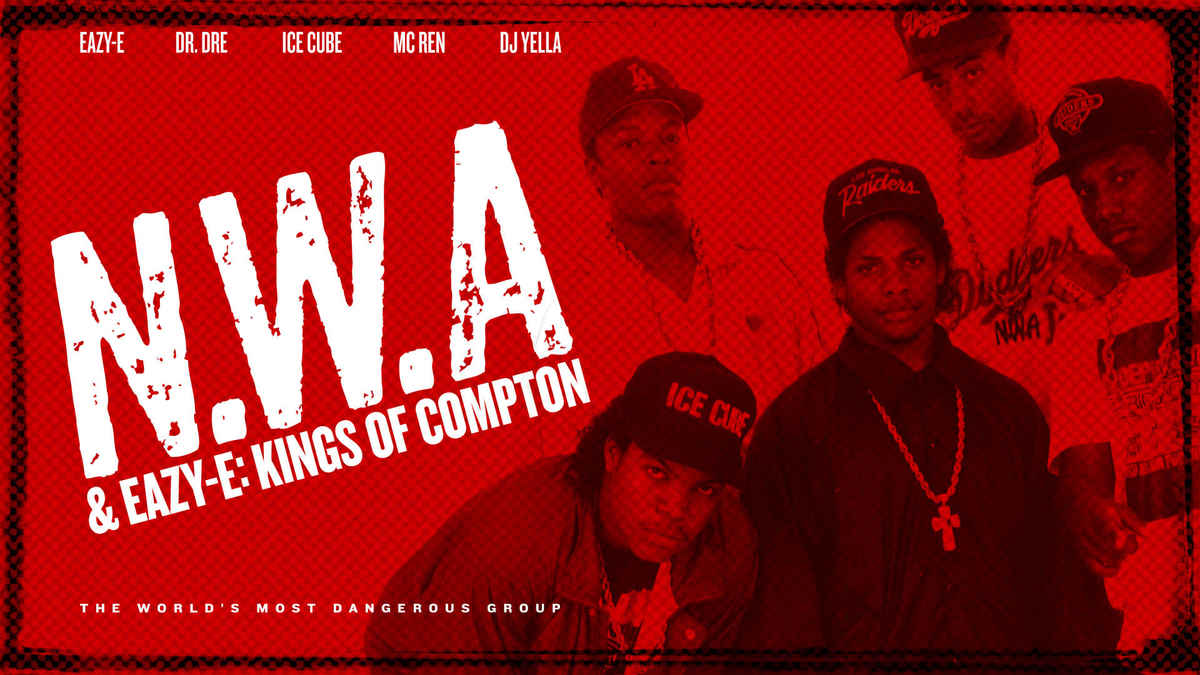

Dre and The D.O.C.'s releases, officially ending N.W.A. from Ruthless, and Suge Knight threatened Eazy-E's family: Suge Knight gave Eazy-E a piece of paper that contained Eazy's mother's address, telling him, "I know where your mama stays." Eazy-E finally signed Dr. This did not convince Eazy-E to release Dr. Dre and The D.O.C., Suge Knight told Eazy-E that he had kidnapped Jerry Heller and was holding him prisoner in a van. The impasse led to what reportedly transpired between Suge Knight and Eazy-E at the recording studio where Niggaz4life was recorded. asked Eazy-E to release him from Ruthless, but Eazy-E refused. sent Suge Knight to look into Eazy-E's financial situation as they began to grow suspicious of Eazy-E and Jerry Heller.

And Eazy was like, 'I'm taken care of, so fuck it'." Dr. Instead of taking care of everybody, he picked one nigga to take care of and that was Eazy. Dre recalls, "The split came when Jerry Heller got involved. N.W.A began to split up after Jerry Heller became the band's manager.

A spokesman for the rapper said that Eazy-E supported Bush because of his performance in the Persian Gulf War. In March 1991, Wright accepted an invitation to a lunch benefiting the Republican Senatorial Inner Circle, hosted by then-U.S. Wright performed on seven of the eighteen songs on Niggaz4Life. Ice Cube responded with " No Vaseline" on Death Certificate. A diss war started between N.W.A and Ice Cube when "100 Miles and Runnin'" and "Real Niggaz" were released. N.W.A released 100 Miles and Runnin' in 1990 and Niggaz4Life in 1991. Ice Cube left N.W.A in 1989 because of internal disputes and the group continued as a four-piece ensemble. The album featured Wright's writing and performing he performed on seven songs and helped write four songs. Wright's only solo in the album was a remix of the song "8 Ball", which originally appeared on N.W.A. Both Glen Boyd from the Seattle Post-Intelligencer and MTV's Jon Wiederhorn claimed that Eazy-Duz-It "paved the way" for N.W.A's most controversial album, Straight Outta Compton. Dre and DJ Yella and largely written by MC Ren, Ice Cube and The D.O.C.

It has sold over 2.5 million copies in the United States and reached number forty-one on the Billboard 200. It was labeled as West Coast hip hop, gangsta rap and, later, as golden age hip hop. Įazy-E's debut album, Eazy-Duz-It, was released on 1988, and featured twelve tracks. The album featured material previously released as singles on the Macola Records label, which was responsible for distributing the releases by N.W.A and other artists like the Fila Fresh Crew, a West Coast rap group originally based in Dallas, Texas. and the Posse was released on November 6, 1987, and would go on to be certified Gold in the United States. N.W.A's (also named as “the world’s most dangerous group” ) original lineup consisted of Arabian Prince, Dr. Musical career N.W.A and Eazy-Duz-It (1986–1991) Heller claims that he invested the first $250,000 and would eventually put up to $1,000,000 into the company. I work for you." Along with Heller, Wright invested much of his money into Ruthless Records. I am responsible for my expenses and you're responsible for yours. That's industry standard for a manager of my caliber. According to Heller, he told Wright, "Every dollar comes into Ruthless, I take twenty cents. Wright suggested a half-ownership company, but it was later decided that Wright would get eighty percent of the company's income and Heller would only get twenty percent. The original idea for Ruthless Records came when Wright asked Heller to go into business with him. He started recording songs during the mid-1980s in his parents' garage, thus starting Ruthless Records. However, after his cousin was shot and killed, he decided that he could make a better living in the Los Angeles hip hop scene, which was growing rapidly in popularity. In 1986, at age 22, Wright had allegedly earned as much as US$250,000 from dealing drugs. Likewise, 'dope dealer' was a role that accorded you certain privileges and respect." 'Thug' was a role that was widely understood on the street it gave you a certain level of protection in the sense that people hesitated to fuck with you. Heller explains: "The hood where he grew up was a dangerous place. Heller would claim that Wright's "dope dealer" label was part of his "self-forged armor". Wright's music manager Jerry Heller recalls seeing Wright selling marijuana, but not cocaine. Wright supported himself mainly by selling drugs, and introduced his cousin to the illicit occupation. You had to be "thug," "playa," "athlete," "gangsta," or "dope man." Otherwise, there was only one role left to you: "victim." No one survived on the streets without a protective mask.


 0 kommentar(er)
0 kommentar(er)
